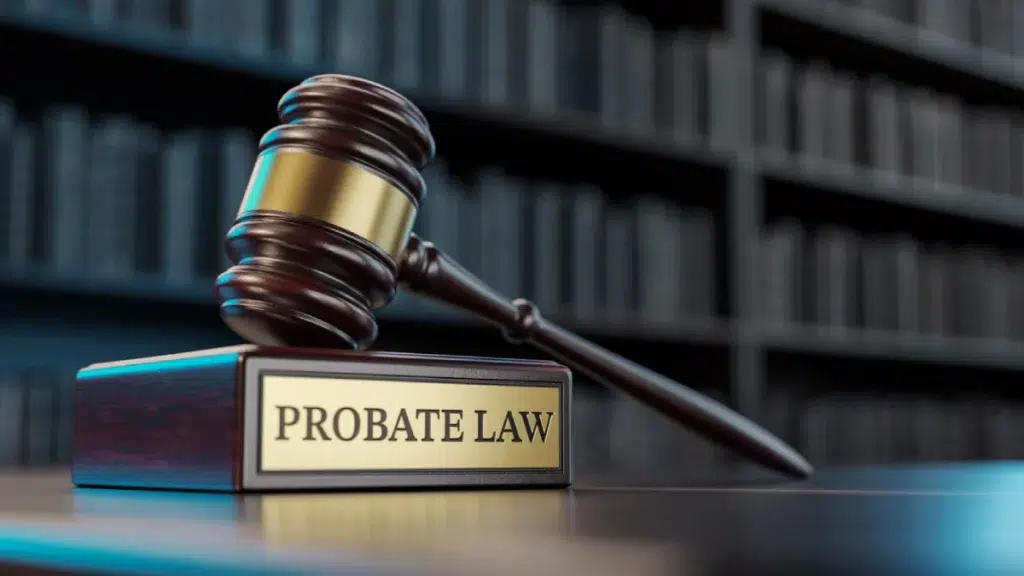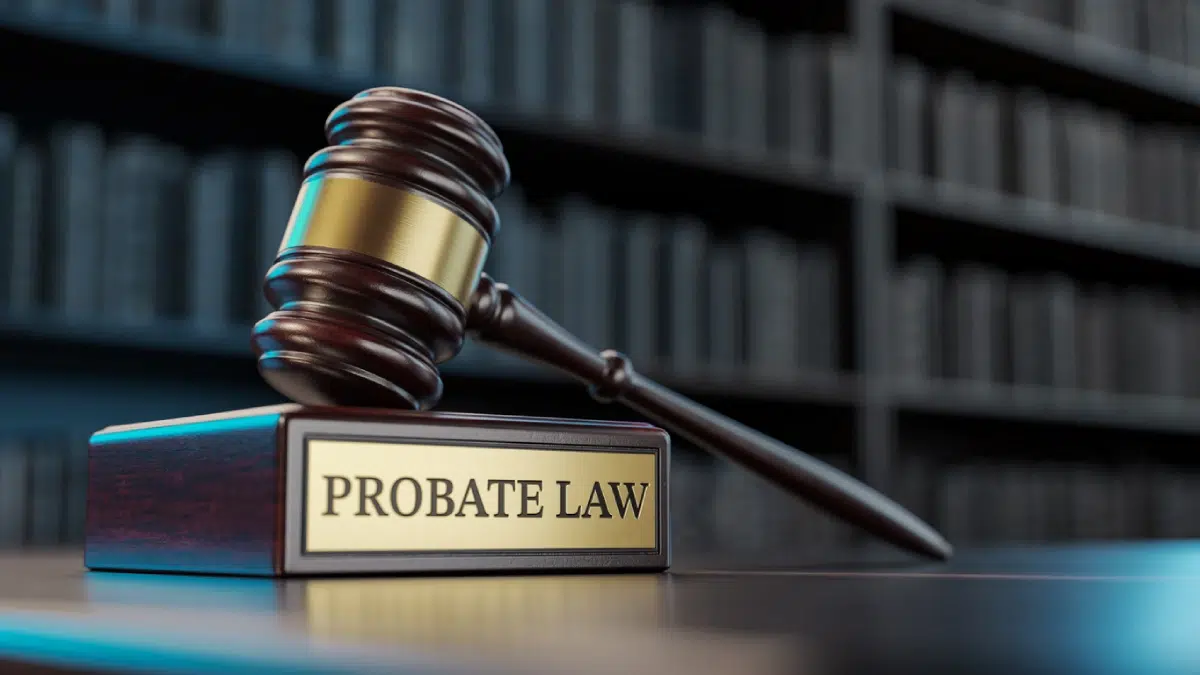
The Probate Process
Probate can seem like a process that’s too complicated. But the truth is, once it’s broken down, it’s just a series of steps designed to make sure everything is handled fairly after someone passes away.
Step 1: Initial Steps
If there’s a Will, it needs to be filed with the clerk of the circuit court in the county where the person lived. By law, the Will is required to be filed 10 days after the date of death to do this under Florida Statute § 732.901.
This petition asks the court to begin probate and appoint a personal representative (sometimes called a Personal Representative).
If there’s a Will, the person named as the personal representative usually files this petition.
Step 2: Notice to Creditors
After the court appoints a personal representative, the representative must publish a “Notice to Creditors” in a local newspaper. This notice informs potential creditors that they have 90 days from the date of first publication to file claims against the estate under Florida Statute § 733.2121.
The personal representative must also directly notify known creditors. These creditors then have 30 days from when they receive the notice to file claims.
Step 3: Inventory of Assets
The personal representative must identify and gather all probate assets, then file an inventory with the court. This inventory lists all assets that are part of the probate estate and their estimated values.
This step can involve collecting statements from financial institutions, getting appraisals for certain assets (e.g., real estate, jewelry, artwork, and other valuable items), and identifying business interests.
Step 4: Paying Debts and Taxes
Before distributing assets to beneficiaries, the personal representative must settle legitimate debts and taxes from the estate funds. These might include:
- Outstanding medical bills
- Credit card debts
- Mortgages and other loans
- Funeral expenses
- Federal and state income taxes
- Florida estate taxes (if applicable)
If there’s not enough money to pay all claims, Florida law establishes an order of priority for payment. If the personal representative disregards this order, they can face big problems, including personal liability.
Step 5: Distribution of Assets
After paying debts and taxes, the personal representative distributes the estate’s remaining assets according to the Will’s instructions or Florida intestacy laws if there is no Will. Before final distribution, the personal representative may need to file a final accounting with the court and get court approval for the distribution plan. They must also obtain receipts from beneficiaries who receive assets before wrapping things up.
Step 6: Closing the Estate
Once all assets have been distributed, the personal representative files paperwork to close the estate.
The court then issues an order discharging the personal representative from their duties, which officially ends the probate process.
Potential Challenges During Probate
Even in the best of circumstances, probate isn’t always a straight line.
You might begin the process expecting it to be fairly routine. But in reality, probate can come with unexpected issues that slow things down or make things more complicated than anticipated.
Here are some of the most common challenges you might run into during probate in Florida:
- Family disputes: Emotions can run high after a loss. Disagreements between siblings or other heirs about who gets what or how things are being handled can stall the process or even lead to legal disputes.
- Will contests: Sometimes, someone challenges the validity of the Will. They might claim the person was pressured, mentally unfit when they signed it, or that the Will was forged. Whatever the cause, these disputes can drag probate into court for months.
- Missing or outdated documents: If the Will is missing, unclear, or hasn’t been updated in years, it can be tough to determine what the deceased really wanted. This can lead to delays and arguments between heirs.
- Unclear or unlisted assets: Personal representatives often struggle to locate all of the decedent’s assets, bank accounts, property, or investments might be scattered or undocumented, making it difficult to complete an accurate inventory.
- Unpaid debts and surprise creditors: Florida law requires the estate to settle outstanding debts before distributing any assets. But creditors can come forward unexpectedly, especially if the deceased had unpaid medical bills, credit cards, or loans.
- Not enough assets to cover expenses: Sometimes, the value of the estate isn’t enough to pay off debts and taxes. When that happens, the personal representative must follow specific rules for who gets paid and who doesn’t.
- Court delays and legal requirements: Probate involves strict deadlines, required notices, and court procedures. Missing a step or filing the wrong form can delay everything.
Probate doesn’t always go as planned, but that’s okay. With the right legal support, you can overcome these challenges and move forward with confidence. If you’re currently dealing with probate issues after a loved one’s death or want to prevent potential issues in the future, Lappin Estate Planning can help.
How to Choose a Probate Lawyer
Hiring a lawyer is never something most people plan to do, especially not in the middle of a personal loss. But if you’re suddenly in charge of handling a loved one’s estate, finding the right probate lawyer can take an enormous weight off your shoulders.
Still, with so many attorneys out there, how do you know who to trust? Here’s how to find someone who’s the right fit for you and your family.
1. Look for Probate Experience
Probate law can vary widely from state to state, so you should work with someone who knows Florida’s specific laws, deadlines, and court procedures. Ask how many probate cases the attorney has handled and whether they’re familiar with the local court in your county.
At Lappin Estate Planning, probate is one of our core focus areas. Our probate attorney has handled dozens of probate cases, and we know how to navigate the state’s unique rules and challenges.
2. Find Someone Who Communicates Clearly
You don’t need a lawyer who talks in legal jargon or makes you feel awkward for asking “silly” questions. Look for someone who explains things in plain English, listens to your concerns, and makes you feel like you’re part of the process.
When you call or meet with them, ask yourself: “Do they listen?” “Do I feel heard?” If the answer is no, keep looking.
3. Ask About Fees Up Front
Probate can be stressful enough without surprise legal bills. Be sure to ask how the lawyer charges. Is it a flat fee? Hourly? Based on the value of the estate? Get clear answers before signing anything, so you know exactly what to expect. A trustworthy attorney will be transparent about costs and help you understand what services are included.
4. Check Reviews and Referrals
Ask friends or family if they have worked with a probate lawyer they’d recommend. Or take some time to read online reviews—Google, Avvo, and other legal directories can offer helpful insight into how past clients felt about their experience.
Look for words like “responsive,” “compassionate,” and “efficient.” Those qualities matter—especially in probate.
5. Trust Your Gut
At the end of the day, you’re choosing someone to guide you through a deeply personal and sometimes emotional process. Trust your instincts. If you feel rushed, dismissed, or uncomfortable, that’s a sign to keep looking.
Questions to Ask Before Hiring
During your initial consultation, consider asking:
- How many probate cases have you handled in Florida?
- Will you personally handle my case, or will it be assigned to another attorney or paralegal?
- What is your communication policy? How quickly can I expect responses to questions?
- What do you see as the potential challenges in my specific situation?
- Can you provide a general timeline for my case?
- How do you charge for your services? Are there any additional costs I should anticipate?
- Do you have experience with the specific issues in my case (e.g., business ownership, real estate, will contests)?
If you don’t understand something in the lawyer’s response, ask for clarification.


